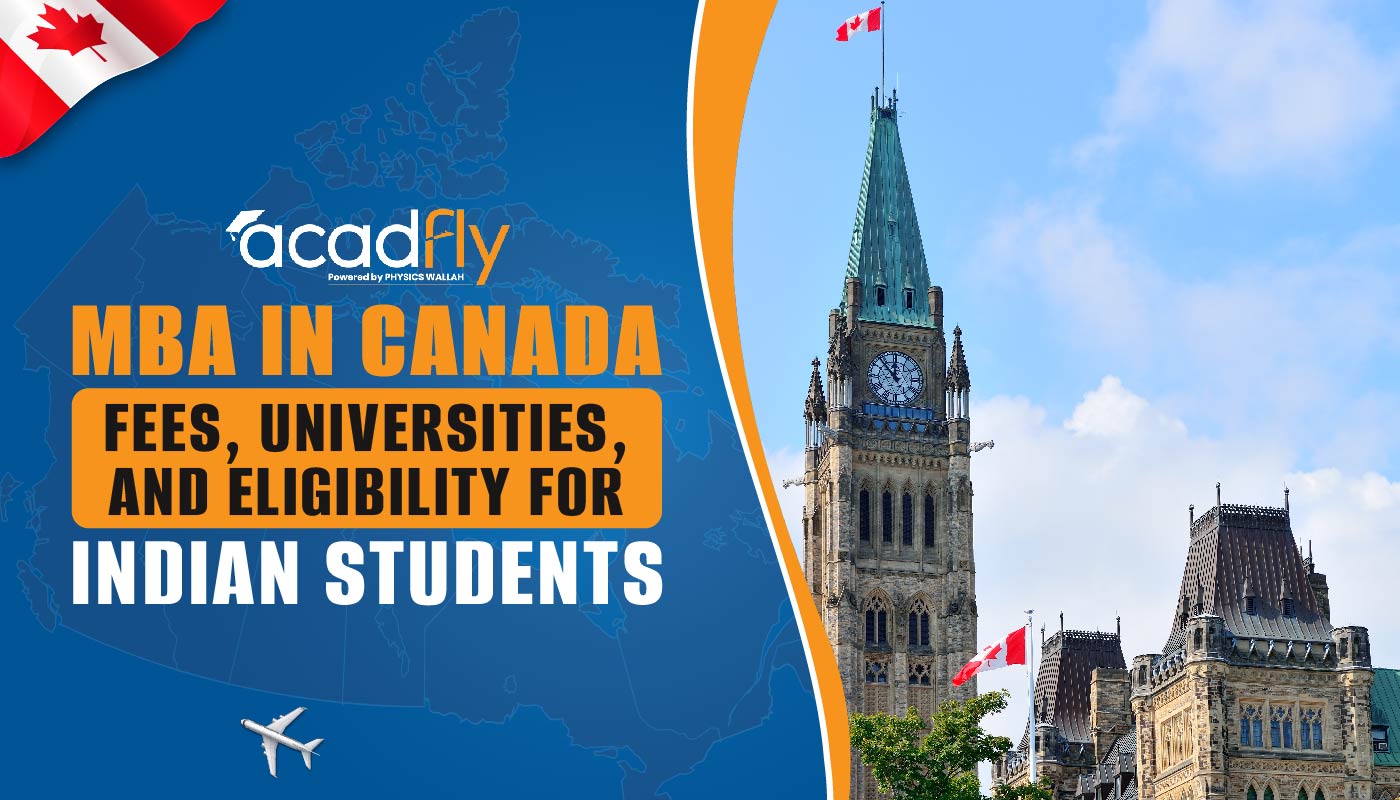

The modern world is interconnected in many ways because of globalisation, and this has made the economy of different nations dependent on one another. Each nation's GDP (gross domestic product) is significantly influenced by trade with the other nations. Building worldwide trade partnerships is crucial for organisations in a world where international commerce has such a significant influence.
This implies that they will also be searching for experts who possess the necessary skills to establish and nurture these connections in addition to overseeing the implementation side of things. An MBA in Foreign Trade might come in handy in this kind of situation. All the information you want is provided here if you are thinking about getting an MBA in Foreign Trade.
Students who take this course will get an understanding of the fundamentals of both management and international trade. As the modern world is a globalised one, applicants get training covering the specifics of foreign resources and elements of the global economy. An MBA in foreign trade typically pays INR 9.5 lakhs annually.
MBA in Foreign Trade
A postgraduate professional degree called MBA Foreign Trade is designed for those who want to work for global corporations. Candidates for admission to this course must hold a bachelor's degree that has been earned for at least three years. As part of the admissions process, students must pass an entrance exam that assesses their aptitude and competency.
Depending on the requirements of the college one gets enrolled to, the course price might range from INR 1 to 14 lakhs. In order to be considered for admission, candidates must pass the college's required entrance test. Group discussions (GD) and personal interviews (PI) will then take place. Additionally, this procedure may vary based on college policies.
A few institutions provide an integrated specialisation of the Master of Business Administration programme called MBA in Foreign Trade. The primary objective of the course is to assist students in better comprehending the many approaches, features, and intricacies of international commerce and foreign exchange. This course integrates aspects of economics, law, marketing, commerce, distribution, and management.
Why Study MBA in Foreign Trade?
We understand that you may be unsure if earning an MBA in Foreign Trade would be worthwhile for you and if it will be worth the cost. The need for experts in this field is always increasing as businesses need personnel who are knowledgeable about the ins and outs of the export-import side of the trade as well as the logistics involved. Financial rewards are possible with an MBA in this area, therefore it would be unwise to pass up the chance. Due to its increasing demand and favourable employment outlook, an MBA in Foreign Trade is quickly rising to the top of the list of most sought-after programmes.
After finishing the course, students will be able to find work in both the public and private sectors in fields such as export and import, international marketing, foreign exchange, and distribution. Thus, a candidate should enrol in this course if they hope to work in one of these sectors. A selection of some of the key topics you will study for your MBA in Foreign Trade is provided below.
-
Insurance and Risk Management in FT
-
Export Pricing and Product Planning
-
Taxation in FT
-
Export Incentives and Institutional Support
-
EXIM Financing
-
World Trade Organizations
-
Accounting for Managers
-
Managerial Economics
-
Personality Development
-
Computer Application in FT
-
Financial Management
-
International Economics & Trade Theories
-
Export-Import Management
-
India’s Foreign Trade: Trends, Prospects, and Strategies
-
Foreign Exchange and Exchange Control
-
Export-Import Policy, Procedure, and Documentation
-
Management Concepts and Organizational Behavior
-
Management Concepts and Organizational Behavior
-
Quantitative Techniques for Foreign Trade
-
Statistical Analysis and Research Methodology
-
International Business Laws
-
International Marketing Management and Consumer Behavior
-
Multinational Financial Management
MBA in Foreign Trade - Top Specialisation
The Foreign Trade specialisation of this MBA course or programme is offered by just a few universities overseas. We have discovered the following well-known universities for you:
|
University/College Name |
Location |
Course Name |
Duration |
|
WINGS – Wismar University |
Germany |
MBA in International Logistics & Trade |
4 semesters |
|
ESLSCA Business School |
Paris, France |
MBA Specialized in Trading – Market Finance |
Full-time and Part-time |
|
Madrid, Spain |
MBA in international trade |
Full-time and Part-time |
|
|
Belo Horizonte Institute of Higher Education |
Prados, Brazil |
MBA in Foreign Trade |
1-2 Years |
MBA in Foreign Trade - Eligibility Criteria
The following requirements for MBA in Foreign Trade eligibility must be fulfilled by candidates:
-
To be qualified for the course, an applicant must be a graduate of any subject and possess a bachelor's degree or an equivalent in any course with a minimum period of three years.
-
Additionally, candidates for admission need to be aware of the nation's present state of economy and its international marketing partnerships.
-
Students must earn a minimum of 50% overall in their undergraduate studies to be admitted to several universities.
-
competitive results on any written or entrance-based test that the university accepts, such as the GMAT, GRE, CAT, XAT, or IIFT.
-
For a specialised MBA programme such as this, several institutions or colleges offer their own entry tests. Having stated that, some may just give admissions solely on merit, while others may also take into account GD & PI in addition to entrance exam results.
-
If you intend to take this course overseas, you will also need the following items:
-
English Language Ability results from tests like the PTE, TOEFL, and IELTS, etc.
-
Every transcript from an academic institution
-
Goal Statements Letters of Recommendation
-
Work Experience (if necessary)
-
Updated resume and curriculum vitae
-
Student visa (if intending to study an MBA abroad)
MBA in Foreign Trade - Skills
Make sure the academic programme you are considering will fit your demands and strengths whenever you are looking at it. It is necessary to have a few certain abilities before applying to a programme. To be eligible for an MBA in Foreign Trade, you must have the following skills:
-
Good interpersonal communication abilities
-
Inclination for foreign languages
-
A knack for business
-
Understanding of different economies
-
a desire to stay current on the latest business trends
-
Excellent leadership skills
MBA in Foreign Trade - Career Opportunities
An MBA in Foreign Trade graduate can find employment in the following fields:
-
Research & Educational Institutions
-
Engineering Goods Companies
-
Export Units
-
International Trade Regulatory Bodies
-
Shipping Companies or Companies
-
International Department of Multinational Companies
-
MNCs Departments
An applicant with a Foreign Trade MBA would be in great demand for employment. Candidates with an MBA in Foreign Trade from a range of areas are employed by businesses and organisations that are involved in the international business sector. The following lists a few well-known job descriptions for an MBA in foreign trade:
-
Foreign Trade Zone Analyst
-
Global Trade Manager
-
Export Manager
-
Export Business Development Manager
-
Export Marketing Manager
-
Head of International Sales and Marketing
-
Foreign Trade Consultant
-
International Business Consultant
-
Associate Relationship Manager
-
Foreign Trade Representative
-
Global Trade Manager
-
Manager Operations- Export
-
Trading Strategist
-
Foreign Trade and Business Analyst
-
Foreign Exchange Specialist
Students pursuing an MBA in Foreign Trade are more equipped to demonstrate their inventiveness and leadership in the expanding import and export industries. Candidates with good course completion grades have a variety of job options available to them. Top companies hiring MBA graduates for Foreign Trade positions include:
|
Wallmart |
Prada |
Wells Fargo |
|
Citigroup |
Microsoft |
Goldman Sachs |
|
Standard Chartered Bank |
Johnson & Johnson |
Accenture |
MBA in Foreign Trade - Future Scope
Indian foreign currency reserves increased from US$ 366 billion in 2016 to US$ 412 billion in 2017, according to the RBI. The international trade industry has grown significantly over the last several years and is expected to do so in the years to come. India's corporate environment has radically changed as a result of globalisation. In addition to numerous Indian enterprises setting up shop overseas or venturing outside for joint ventures, international commerce in India has increased considerably, naturally drawing more and more multinational corporations to establish operations. The necessity for workers with experience in international commerce has increased as a result of all of this.
For individuals taking courses in foreign commerce and international business, a career in international business has therefore emerged as a profitable choice with chances for employment across the world. The scope of an MBA in foreign trade will only grow in the future.
FAQs
1. Is it an excellent choice to get an MBA in Foreign Trade from India?
The opportunities for MBA Foreign Trade in import-export firms are enormous. Certain bank clients also require finance for imports and exports, as well as the transfer of funds to overseas clients. Consequently, the opportunities for MBA Foreign Trade are enormous. In this area, there are many prospects for travel as well.
2. What distinguishes an MBA in foreign business from an MBA in international business?
The MBA in International Business covers a wide range of subjects, including conducting business internationally and in the context of many cultural traditions. Additionally, it gets a candidate ready for a variety of international jobs in supply chain, marketing, or finance. On the other hand, an MBA in Foreign Trade would provide students with specialised information about conducting business globally and what safety measures to take.
3. What benefits does foreign trade offer?
Every nation engages in international commerce in order to focus on producing the items that are most suited to their particular circumstances. Thus, it results in the most efficient use of its natural resources. It allows a nation to import things that its higher-cost domestic production is unable to provide.
4. Which kinds of trade are there abroad?
Foreign commerce essentially falls into two categories:
-
Trade that is bilateral involves the exchange of commodities and services between two nations.
-
Trade that is multilateral in nature involves the exchange of goods and services between two or more nations.
5. What is an international trade management MBA?
Ans: With a focus on foreign direct investments, exports and imports, worldwide sales, and marketing, the programme gives students the most up-to-date information about how to navigate the many global marketplaces.
6. What is the scope of a Foreign Trade MBA?
An MBA in International Business with a focus on International Trade is intended for those who are well-versed in many nations and have an understanding of how sales and goods are exchanged. Individuals who possess the ability to comprehend international trade may be able to choose a promising career path and follow it full-time.
Frequently Asked Questions









